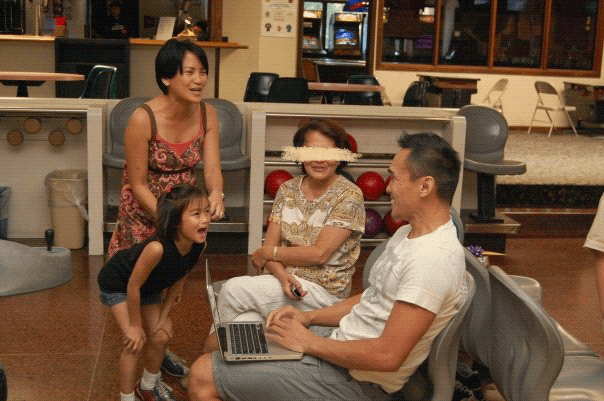
Rose with Sara, her granddaughter Sophia, and nephew Francis at the Buena Lanes bowling alley in Ventura, Calif. via Sara's Facebook.
The ranch offered the 11-year-old Sara the opportunity to live close to her mother. Up until that point, she had been chasing the affection of a mother who seemed to never come home. Twenty years after the ranch crumbles, she settles down in Ventura, California with her husband Miguel. She has a job and a family. She has made a life of her own—and she did so by herself. She learned to make a life without the affection of her mother.
She moved to the ranch, hopeful for the opportunity to become closer to her mother. But with age she would realize the closeness she desired wasn’t compatible with her mother’s nomadic lifestyle.
“She wasn’t rooted in anything, and I need to be rooted in something," says Sarah. "I needed to be normal, to feel accomplished, to feel comfortable, to feel that I didn’t need to rely on my mom’s love anymore to support me.”
Rose would stay in the United States, moving from one state to the other, before moving to Ventura to live with her daughter. But, according to her daughter, Rose—and many others from the ranch—never quite recovered from the commune’s dissolution. The ranch offered a space of like-minded nomads, a space where folks didn’t need to worry about money or conflict. And it is because of this, Sara recounts, that the ranch didn't provide folks with the skills to function in the world outside of it. After the ranch dissolved, many lacked stable employment, and some of Sara's friends fell into drugs.
Following the ranch's dissolution, Rose continued to the navigate the world as she had when the ranch was in its prime, with little concern for money or navigating conflict. After becoming a mother of her own, Sara realized the disparity between how her mom provided for her children as opposed to how she provided for her own.
But identifying this disparity wasn't an indictment. Perhaps it was an armistice.